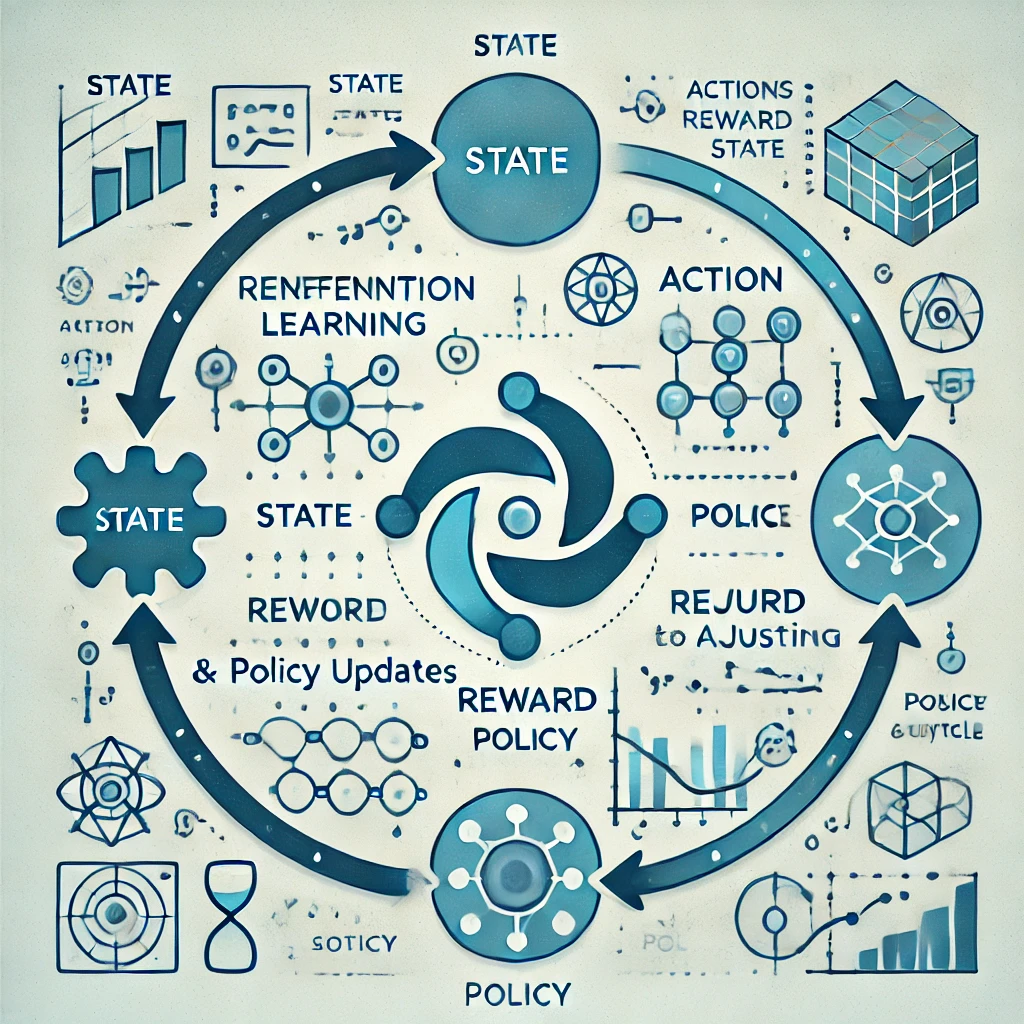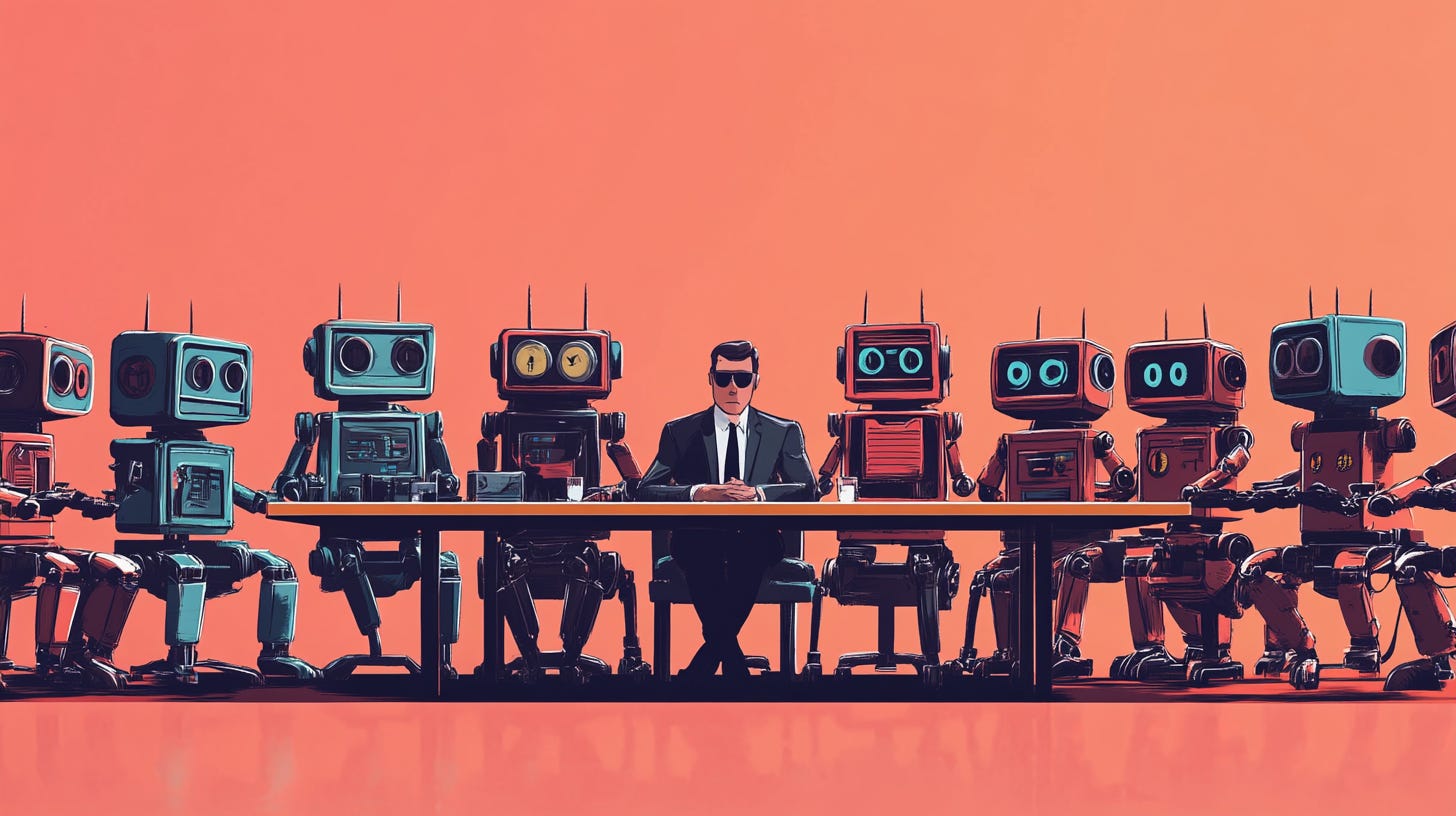OpenAI Agents: Revolutionizing Task Automation and AI Applications
Artificial Intelligence (AI) has transformed from being an abstract concept to a practical tool that automates complex tasks. OpenAI agents represent one of the most groundbreaking developments in the AI landscape. These agents, also referred to as intelligent agents or autonomous agents, have the capacity to understand instructions, process information, and autonomously carry out tasks. In this blog, we will dive deep into what OpenAI agents are, how they work, real-life applications, how to integrate them into your projects, and the immense potential they hold for the future of business.
What Are OpenAI Agents?
An OpenAI agent is an AI-driven system designed to interact with its environment, understand specific objectives, and take actions based on the data it processes. These agents function autonomously, meaning they don’t require constant human input once trained or programmed. They can interact with users, learn from tasks, adapt to new information, and complete tasks without continuous monitoring.
Key Components of OpenAI Agents:
- Input Processing The agent takes input from users, environments, or sensors. This could be natural language text, images, audio, or structured data.
- Decision-Making Using pre-programmed rules, algorithms, or deep learning models, the agent processes the input, understands context, and makes decisions.
- Action Execution Based on its decision-making process, the agent can perform tasks like responding to questions, automating processes, generating outputs, or interacting with other systems.
- Feedback Loop Agents learn from their actions through feedback, which improves future decision-making.
How OpenAI Agents Work
In recent years, OpenAI agents have emerged as powerful tools, driving significant advancements in task automation and AI applications. Leveraging advanced machine learning algorithms such as reinforcement learning (RL) and natural language processing (NLP), OpenAI agents are at the forefront of transforming how AI interacts with complex tasks and responds to user needs.
At the core of OpenAI Agents is a blend of cutting-edge technologies. Reinforcement learning allows these agents to continuously learn from their environment, optimizing their actions through trial and error to maximize desired outcomes. By integrating NLP, OpenAI agents can understand and interpret human language, allowing them to grasp user intent with remarkable accuracy. This combination of RL and NLP enables OpenAI agents to adapt in real-time, making them incredibly effective for a wide range of applications.
OpenAI Agents are reshaping industries, from customer service and content creation to data analysis and software development. Their ability to automate tasks and make intelligent decisions has made them indispensable for businesses looking to boost efficiency and reduce operational costs. As AI continues to evolve, the role of OpenAI agents in task automation and AI applications will only expand, unlocking new possibilities for innovation and productivity.
Whether you’re a business leader, developer, or tech enthusiast, understanding how OpenAI agents function and their potential impact can provide valuable insights into the future of AI. With OpenAI Agents leading the charge, the future of AI-driven task automation looks brighter than ever.
Breakdown of Key Processes:
1. Input Understanding
OpenAI agents can take various forms of input:
- Text: Using NLP models like GPT (Generative Pre-trained Transformer), OpenAI agents can understand human language, interpret commands, and generate human-like responses.
- Images: Vision-based agents use computer vision models to analyze and interpret visual data.
- Audio: Through speech recognition models, agents can transcribe and understand spoken commands.
Example:
import openai
response = openai.Completion.create(
engine="text-davinci-004",
prompt="What is the capital of France?",
max_tokens=50
)
print(response.choices[0].text.strip())
Result
Paris2. Task Management and Decision-Making
Once the input is processed, the agent moves into its decision-making phase. This involves using algorithms like Reinforcement Learning, which allows the agent to make decisions that maximize its performance over time.
For example, an agent tasked with managing inventory for a business will analyze historical data and future predictions to decide when and how much stock to order. These decisions are based on maximizing efficiency and minimizing costs.
Reinforcement Learning Workflow:
- State: The current status or environment the agent is in.
- Action: The decision the agent makes in response to the environment.
- Reward: A feedback mechanism that helps the agent learn whether its action was correct.
- Policy: The strategy or set of rules that defines how the agent chooses actions.

3. Action Execution
After decision-making, the agent takes actions. These actions can range from generating responses to interacting with external systems or APIs, managing workflows, and performing specific tasks autonomously.
Once the decision-making process is complete, the agent takes actions that vary widely in scope and purpose.
At this stage, the agent’s actions can include generating responses, interacting with external systems or APIs, managing workflows, and even performing specific tasks autonomously.
Following its decision-making, the agent moves on to execute actions, which might involve anything from response generation to autonomous task management.
As a result of its decisions, the agent can take actions such as generating responses, engaging with APIs, managing complex workflows, and autonomously completing specific tasks.
After making decisions, the agent proceeds to action. These actions could include generating responses, integrating with external systems or APIs, managing workflows, or carrying out tasks on its own.
4. Learning and Feedback
AI agents are dynamic. After completing a task, they can receive feedback (either from users or self-generated based on task success). This feedback is critical for the agent to improve performance over time.
Real-Life Applications of OpenAI Agents
AI agents are already being deployed across industries, demonstrating their versatility and potential. Let’s explore a few key real-life applications:
1. Customer Service Automation
AI agents can revolutionize customer service through intelligent chatbots. These agents interact with customers, answer questions, and resolve issues without human intervention.
Example: AI Chatbots
- Companies like Zendesk and Intercom use AI-powered chatbots to manage support tickets, answer FAQs, and guide users through troubleshooting steps. This reduces customer wait times and improves satisfaction.
2. Healthcare
In healthcare, AI agents assist doctors by analyzing patient data, recommending treatments, and even handling administrative tasks such as scheduling appointments or managing medical records.
Example: Medical Diagnostics
- AI agents are used for diagnostic purposes, such as interpreting medical images (X-rays, CT scans), predicting disease onset, and identifying potential treatment plans based on patient data.
3. Business Process Automation
AI agents are helping businesses automate processes such as payroll management, supply chain logistics, and HR onboarding. By automating repetitive tasks, businesses can focus on higher-level strategic goals.
Example:
- UiPath and Automation Anywhere use AI agents for robotic process automation (RPA), optimizing back-office operations and workflows.
4. Personal Assistants
OpenAI agents can be used to create smart personal assistants that manage your calendar, respond to emails, schedule meetings, and even summarize key points from documents.
Example:
- Siri, Alexa, and Google Assistant are advanced agents that assist users with personal tasks, such as reminders, playing music, or controlling smart home devices.
How to Use OpenAI Agents in a Project
Let’s walk through the process of integrating OpenAI agents into a project. Below is a sample project using OpenAI’s GPT-4 model to build a personal assistant for generating reports from data.
Step 1: Install OpenAI Library
pip install openaiStep 2: Import OpenAI and Set API Key
import openai
# Replace with your OpenAI API key
openai.api_key = "YOUR_API_KEY"Step 3: Build a Simple Task
For example, generating a monthly sales report from data:
response = openai.Completion.create(
engine="text-davinci-004",
prompt="Generate a sales report for the following data: [Insert Data Here]",
max_tokens=500
)
print(response.choices[0].text.strip())
Step 4: Deploy the AI Agent
Once the assistant is built, deploy it using a web framework like Flask or Streamlit. With tools like Streamlit, you can easily build interactive UIs for your AI agents.
The Future of OpenAI Agents: A Glimpse Into Tomorrow
As AI agents continue to evolve, they are poised to play a transformative role in multiple sectors. Here are a few ways AI agents will shape the future:
1. Advanced Business Intelligence
AI agents will provide businesses with real-time insights, predictive analytics, and even strategic recommendations based on large-scale data analysis. This will revolutionize decision-making processes and enable businesses to stay ahead of the curve.
2. Personalized Customer Experiences
AI agents will offer highly personalized customer experiences. With the ability to understand customer preferences and habits, AI agents will anticipate customer needs, making interactions more fluid and efficient.
3. Autonomous Enterprises
In the future, entire business processes could be run by AI agents. From manufacturing lines to financial departments, AI agents will autonomously manage workflows, inventory, scheduling, and even hiring decisions.
4. Enhanced Human-AI Collaboration
As AI agents become more intelligent and intuitive, they will become indispensable partners in various industries. They won’t replace humans but will augment human capabilities, allowing workers to focus on more creative and strategic tasks.
OpenAI agents represent the next frontier in AI applications. With their ability to automate tasks, make intelligent decisions, and learn from their environments, these agents have the potential to revolutionize industries across the board. From healthcare to customer service to business operations, AI agents are making life easier, more efficient, and smarter.
As businesses continue to adopt AI, the role of OpenAI agents will expand, ushering in a future where human-machine collaboration is seamless and widespread. Whether you’re looking to improve customer satisfaction, automate routine tasks, or develop cutting-edge applications, integrating OpenAI agents into your projects will keep you at the forefront of innovation.
The time to start experimenting with AI agents is now. The future is bright, and OpenAI agents will be the driving force behind many of the technological advancements that will shape tomorrow.









